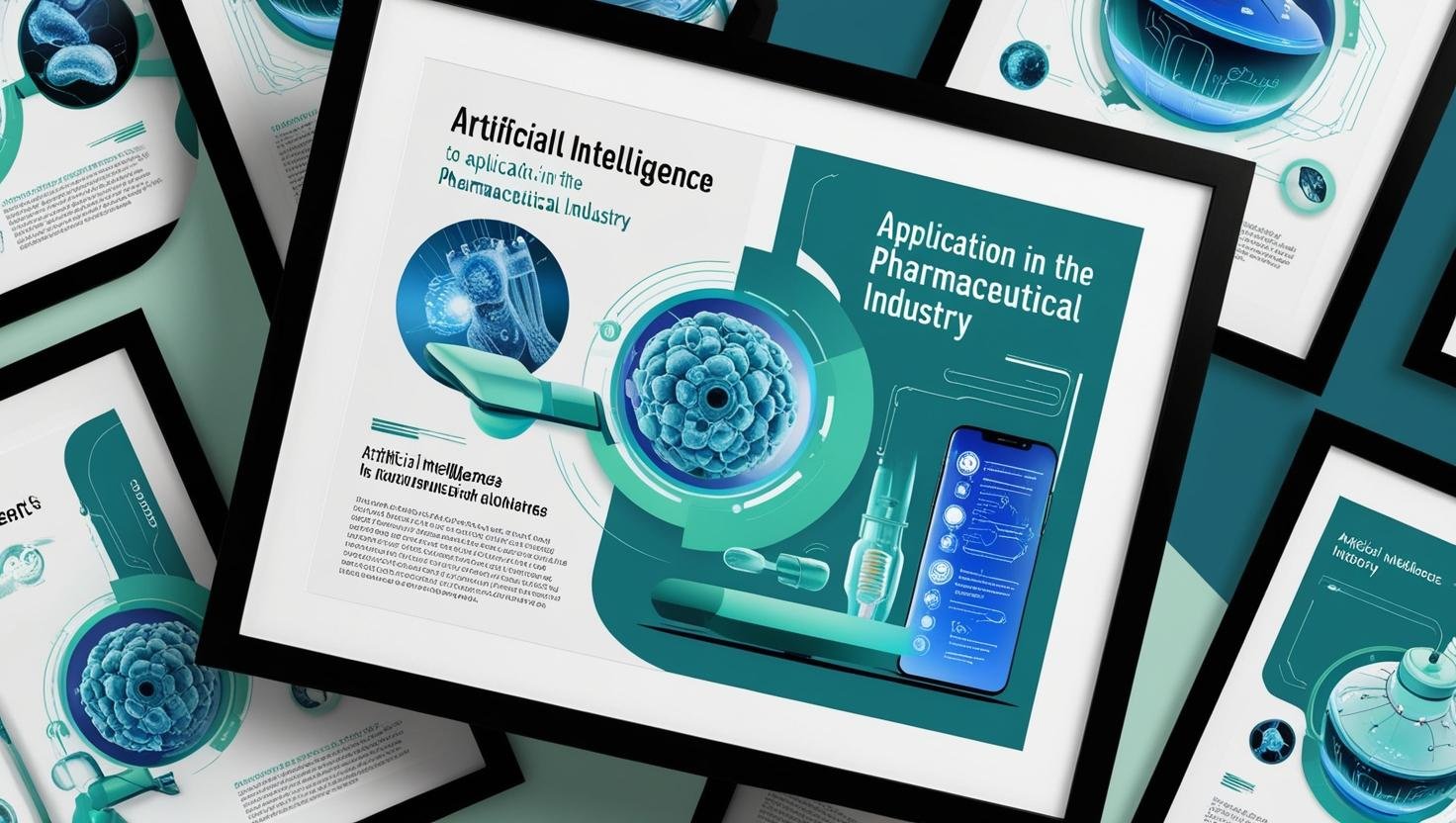
Transforming Healthcare by enhancing patient care, pharmaceutical innovation, and employee wellness.
Revolutionizing Patient Care, Pharmaceutical Innovation, and Employee Wellness
-

Hospitals and Health Systems
Automating patient intake and registration, as seen at Cleveland Clinic, significantly reduces manual errors and waiting times, leading to a faster check-in process and an enhanced patient experience.
Clinical decision support systems, like those used at Mayo Clinic, assist doctors by suggesting diagnoses and treatment plans based on patient history and current symptoms, resulting in improved diagnostics, reduced medical errors, and personalized treatment.
Medical imaging analysis, exemplified by Zebra Medical, enables faster and more accurate detection of abnormalities such as tumors or fractures, leading to quicker diagnoses, lower costs, and early detection for better outcomes.
Continuous patient monitoring, as implemented at Mount Sinai, uses AI to predict deterioration or detect anomalies in patient vitals, reducing ICU admissions, enabling quicker responses, and improving patient safety.
-

Pharmaceutical
AI-driven drug discovery, as demonstrated by Insilico Medicine, leverages massive datasets to identify potential drug compounds and predict their efficacy, significantly reducing the time and costs associated with drug discovery and accelerating the development of new therapies.
In clinical trial design and recruitment, AI optimizes trial design, patient matching, and recruitment processes, as seen with Pfizer, leading to faster trial enrollment, lower costs, and a higher likelihood of trial success.
AI models in drug manufacturing, such as those used by Amgen, optimize manufacturing processes to reduce waste and ensure consistent product quality, resulting in improved manufacturing efficiency, reduced waste, and lower production costs.
In sales and marketing, AI analyzes physician and patient data to provide personalized marketing insights and targeted sales strategies, exemplified by Novartis, enhancing marketing effectiveness, increasing sales conversion rates, and delivering a better return on investment for marketing spend.
-

Employee Wellness
AI-driven employee wellness programs offer significant benefits, including cost optimization, enhanced engagement, mental health improvements, data insights, and addressing challenges. For example, Willis Towers Watson has implemented personalized recommendations and dynamic allocation to reduce costs.
Unilever has used custom plans and virtual assistants to boost engagement.
Johnson & Johnson has integrated AI therapists and burnout prediction to improve mental health.
Google has utilized trend analysis and health literacy to gain valuable data insights. Ford has focused on inclusivity and real-time monitoring to address challenges effectively.
Medium-sized companies like HubSpot have adopted AI for personalized wellness plans, Zendesk has used AI for mental health support, and Shopify has implemented AI-driven fitness and nutrition programs. These initiatives lead to substantial cost savings, improved employee well-being, and increased productivity.
GenAI for Hospitals
-
Tempus uses AI and machine learning to analyze clinical and molecular data, assisting healthcare providers in personalized treatment planning, particularly in oncology. It offers solutions for analyzing medical imaging and patient records
-
IPathAI uses AI to assist pathologists in diagnosing diseases from medical images, such as detecting cancer. It enhances accuracy and efficiency in pathology workflows, helping hospitals with faster and more accurate diagnoses.
-
Aidoc provides AI-powered radiology tools that help in interpreting medical images (e.g., CT scans). It can detect abnormalities and alert radiologists, streamlining workflow and improving diagnostic accuracy.
-
Zebra Medical Vision provides AI-powered medical imaging solutions, detecting diseases such as cancers, cardiovascular conditions, and other chronic diseases.
-
Babylon Health uses AI and machine learning for telemedicine and virtual consultations. It offers AI-driven chatbots to help patients assess their health symptoms and recommend appropriate treatments or doctors
-
Qventus provides an AI-powered hospital operations platform, helping hospitals optimize workflow, manage patient flow, and predict issues such as overcrowding. It uses predictive analytics to assist with resource allocation and staffing.
-
VitaAI offers an AI platform for hospitals that focuses on improving diagnostic imaging and workflow in radiology. It enables hospitals to reduce diagnostic errors and streamline imaging interpretation.
-
Nuance provides speech recognition and NLP tools to help healthcare professionals document patient interactions more efficiently. Their AI platform includes tools for radiology, oncology, and clinical documentation, improving productivity and accuracy.
-
Arterys offers AI solutions for medical imaging, focusing on cardiac, radiology, and oncology imaging. The platform helps healthcare providers interpret complex data, improving diagnostic accuracy and speed.
-
Imbio’s AI-driven medical imaging platform focuses on lung and heart imaging, providing more accurate analysis of chest CT scans. Its solutions are designed to enhance diagnostic precision and reduce errors in pulmonary and cardiovascular disease detection.
HealthCare GenAI Platforms
GenAI for Pharmaceuticals
-
Insilico Medicine utilizes AI for drug discovery and development, particularly focusing on the identification of novel molecules and biomarkers. Their platform accelerates preclinical research and clinical trial designs, offering a comprehensive solution for drug development.
-
Atomwise uses AI and deep learning to predict how different molecules will interact. Their platform assists in drug discovery by analyzing vast amounts of chemical data to identify promising compounds for diseases, including rare and neglected diseases.
-
Exscientia employs AI for drug discovery, integrating machine learning to design new drugs. The platform significantly speeds up the process by optimizing compounds, predicting their effectiveness, and identifying the best candidates for clinical trials.
-
BenevolentAI uses AI and machine learning to analyze complex biomedical data, helping pharmaceutical companies accelerate the drug discovery process. Their platform supports drug repositioning and provides insights into disease mechanisms and target identification.
-
Recursion combines AI, biology, and automation to identify potential drug candidates and biomarkers. Their platform uses generative models to predict molecular interactions and analyze vast biological data, aiding in faster discovery and development.
-
Schrödinger’s platform combines physics-based simulations and machine learning to predict molecular behavior. Their software helps in drug design, identifying novel compounds, and optimizing molecular structures for specific therapeutic targets
-
CureMetrix leverages AI to improve the efficiency and accuracy of mammography screenings. While focused on medical imaging, its technology is instrumental in drug development for breast cancer by providing more precise diagnostics, which can inform drug research.
-
Pharnext uses AI to discover and develop new treatments for neurodegenerative diseases, such as Alzheimer’s and Parkinson’s. Their platform employs advanced data analytics and machine lear
-
GNS Healthcare uses AI to predict patient outcomes and optimize clinical trials by simulating patient behavior. Their platform analyzes real-world clinical and biological data to improve drug development and identify new therapeutic pathways.
-
Vera Therapeutics leverages AI to improve precision medicine in drug development, especially in immune-mediated diseases. Their platform uses advanced data analytics to optimize clinical trials and accelerate drug discovery by focusing on specific patient populations.
GenAI for Employee Wellness
-
Leena AI is enterprise conversational AI platform that enhances employee experience through HR helpdesk automation and engagement tools
-
YuMuuv is a corporate wellness platform emphasizing gamification and team challenges to promote healthy habits and engagement among employees
-
Headversity is a corporate wellness software solution focusing on preventative mental health and resilience training for the workforce
-
Burnalong is a digital health and well-being platform offering over 30,000 live and on-demand classes across 60+ wellness categories, utilizing machine learning to recommend personalized programs based on individual goals and preferences.
-
Raiys is an online wellness coaching and health app offering tailored services for employers, focusing on improving work-life balance through virtual sessions with wellness coaches and guided cognitive-behavioral therapy.
-
Vantage Fit is a corporate wellness platform powered by AI, focusing on preventive health and fitness by promoting healthier lifestyles through personalized fitness plans and challenges.
-
Headspace Health is a corporate wellness solution focusing on mental health, offering an extensive library of guided meditations, mindfulness exercises, and access to professional life coaches and therapists
-
Viva Insights is a part of Microsoft's Viva employee experience platform, focusing on improving productivity and well-being by providing personalized data-driven insights derived from work patterns.
-
Zeno is a holistic health app designed to support workforces in becoming mentally, physically, financially, and socially resilient, offering well-being articles, health metric tracking, and personalized goal setting
-
Wellable is a corporate wellness partner offering technology and services to support employee health, including fitness classes, health fairs, and personalized wellness assessments


